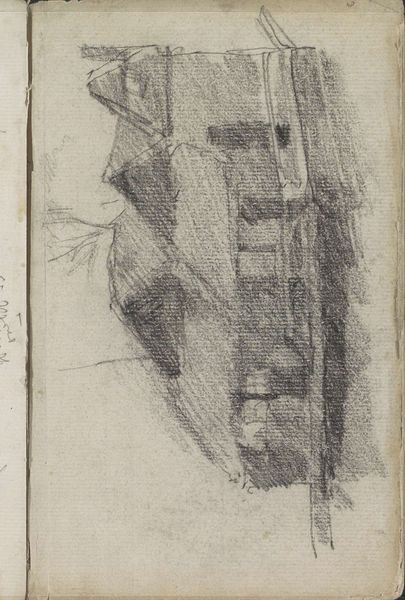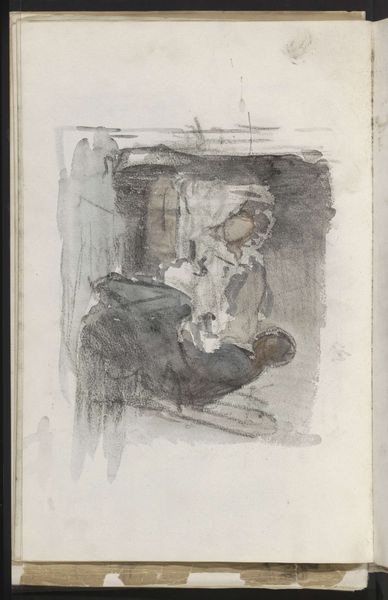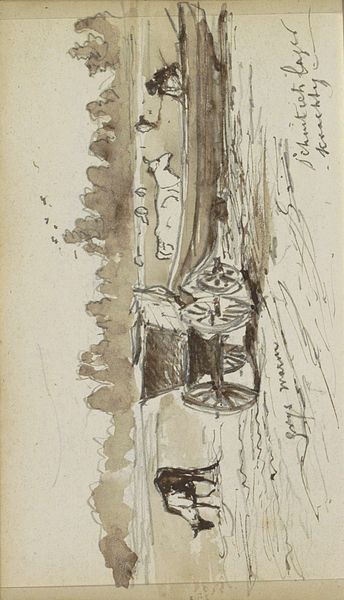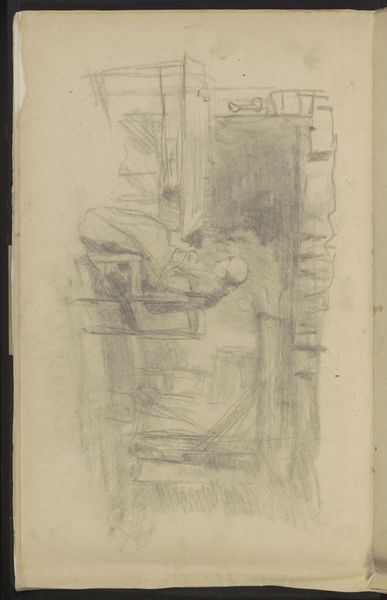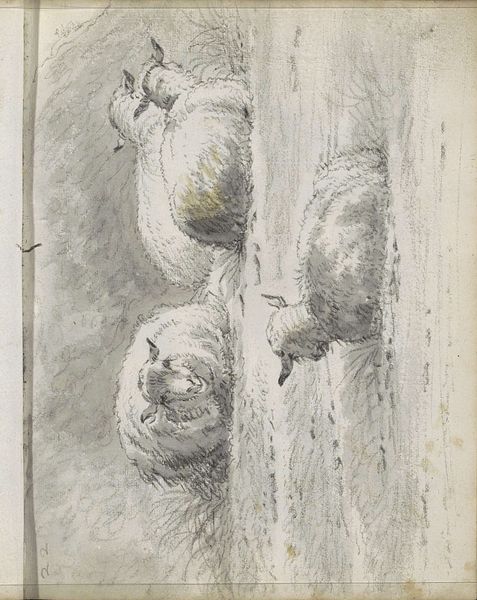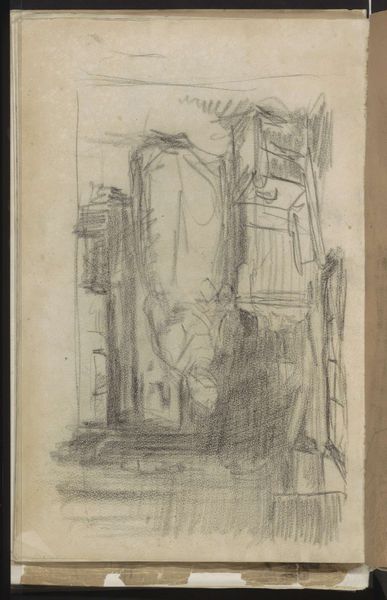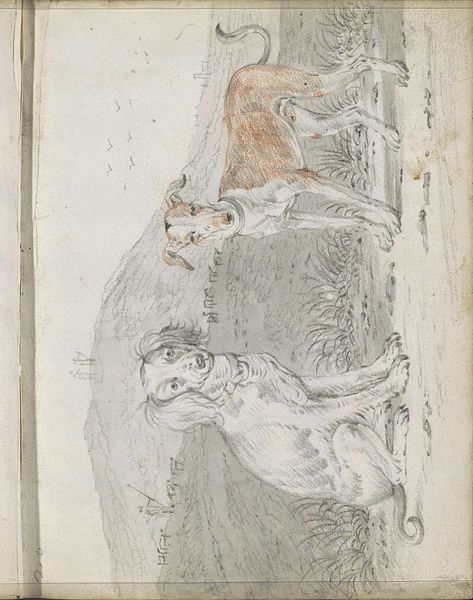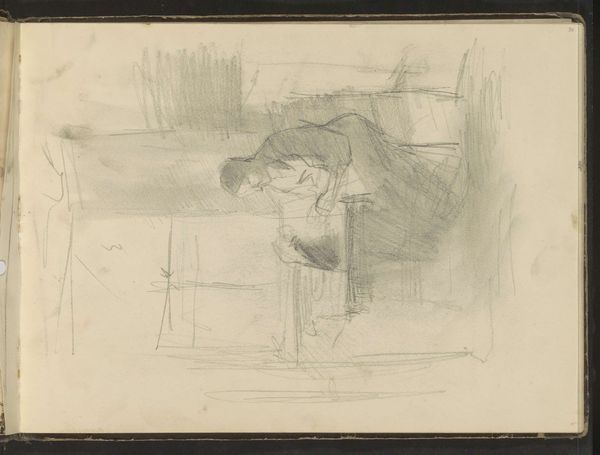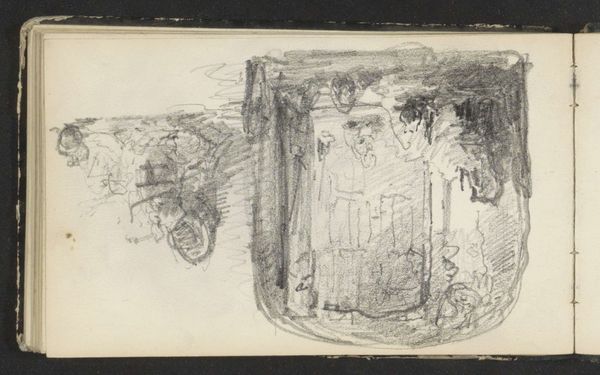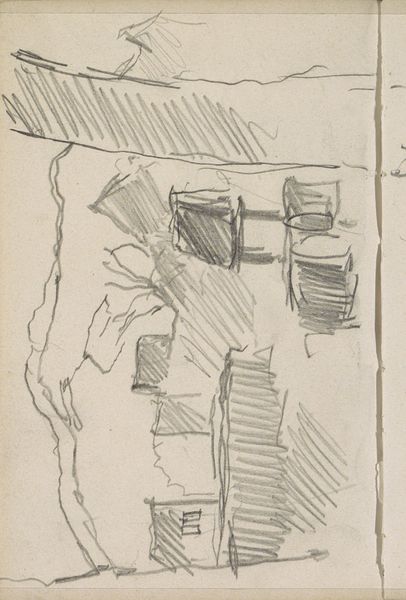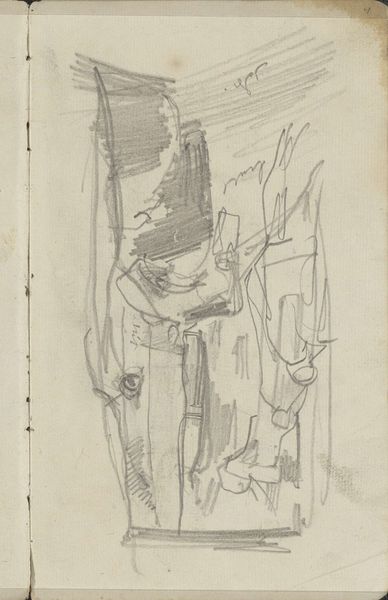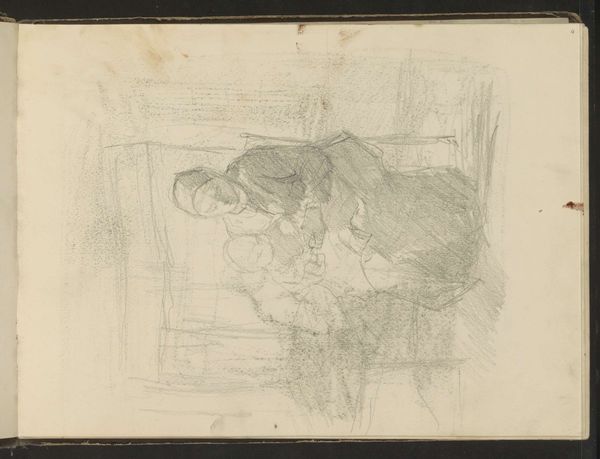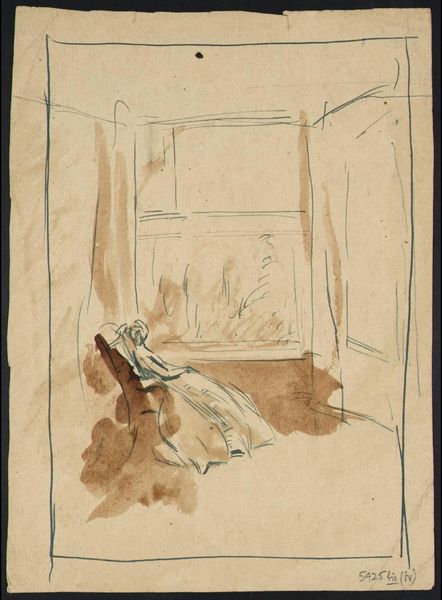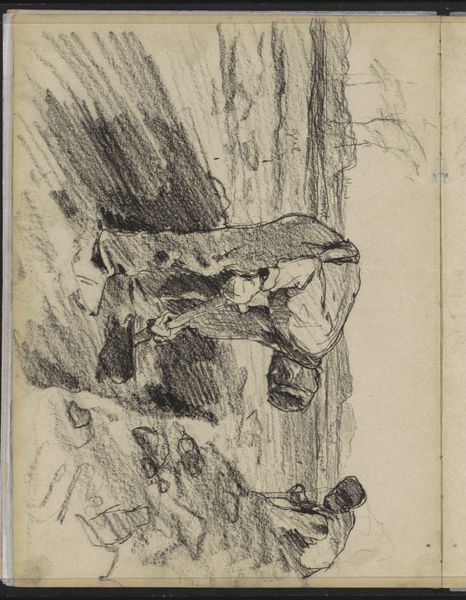
drawing, paper, pencil
#
portrait
#
drawing
#
charcoal drawing
#
paper
#
pencil drawing
#
romanticism
#
pencil
#
watercolor
Copyright: Rijks Museum: Open Domain
Editor: So, here we have Johannes Tavenraat's "Kasteleine te Westerlo, van opzij gezien," made between 1841 and 1848 using pencil, charcoal, and watercolor on paper. It's currently held at the Rijksmuseum. I find the sketchiness of it really intriguing; it feels very immediate and personal, almost like a captured memory. What stands out to you in this drawing? Curator: It strikes me as a visual poem of remembrance. Note the delicate use of line and shadow, how it renders not just the form but the feeling of the sitter, the *Kasteleine*, against the backdrop of her home at Westerlo. Consider the hat-- it seems to cast her in shadow--perhaps representative of her psychological space. It’s about presence, absence, and the layered meanings we ascribe to place. Does this imagery echo ideas of isolation, perhaps even a societal confinement experienced by women in that period? Editor: That's a really interesting point about her seeming isolation. I hadn’t thought about it in terms of gender. The almost ghost-like quality to the architectural details could be seen as symbolic of something fading or being forgotten. Curator: Exactly! Think about how symbols speak across time. Castles evoke a history of power, strength, but also enclosure. By rendering it faintly, almost as an afterthought, Tavenraat implies what exactly? A shift in social structures? The fading of aristocratic power? It becomes a visual metaphor. The architecture almost speaks of its own future ruin or diminishment. Editor: So the woman's pose, her gaze, in relation to the castle suggests a whole complex of shifting societal values? Curator: Precisely. It suggests she, too, like her domain is caught in flux; it hints to broader cultural memories tied to the image, perhaps ideas about loss or the ephemeral nature of beauty. Editor: Wow, I see the drawing in a completely new way now. Thank you! Curator: My pleasure! Every stroke has something to reveal if you are willing to look close and question their symbolic meanings.
Comments
No comments
Be the first to comment and join the conversation on the ultimate creative platform.
